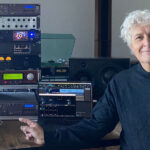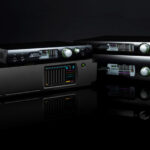December 4th 2023: Inspired by the Royal Birmingham Conservatoire, Prism Sound has realised its vision of a modular audio conversion with this exciting new product.
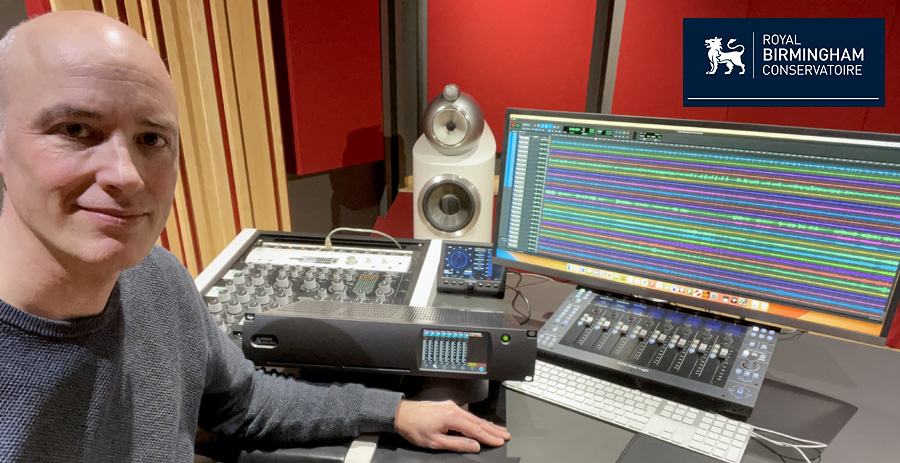
When manufacturers develop new products they usually have a fairly clear idea of the market they are targeting and the benefits their latest innovation will bring. Sometimes, though, the spark of an idea emerges from nothing more than a creative discussion, leading to the development of something that wasn’t initially on the manufacturer’s roadmap.
This was certainly the case for UK audio conversion specialist Prism Sound when a conversation between the company’s Managing Director Jody Thorne and the technical team at the Royal Birmingham Conservatoire led to the idea for a new audio conversion system offering flexibility, functionality, and cost effectiveness without compromising sound quality.
The Conservatoire was in the process of building a new facility and was looking for high quality converters with a very small footprint. Knowing Prism Sound’s reputation in this area, they approached us to see if we could help.
Jody Thorne - Prism Sound Managing Director
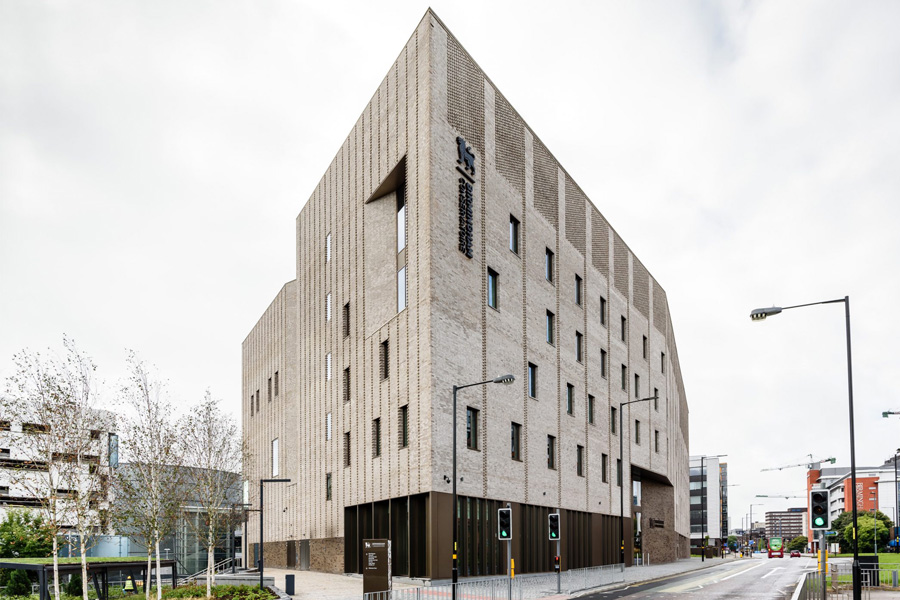
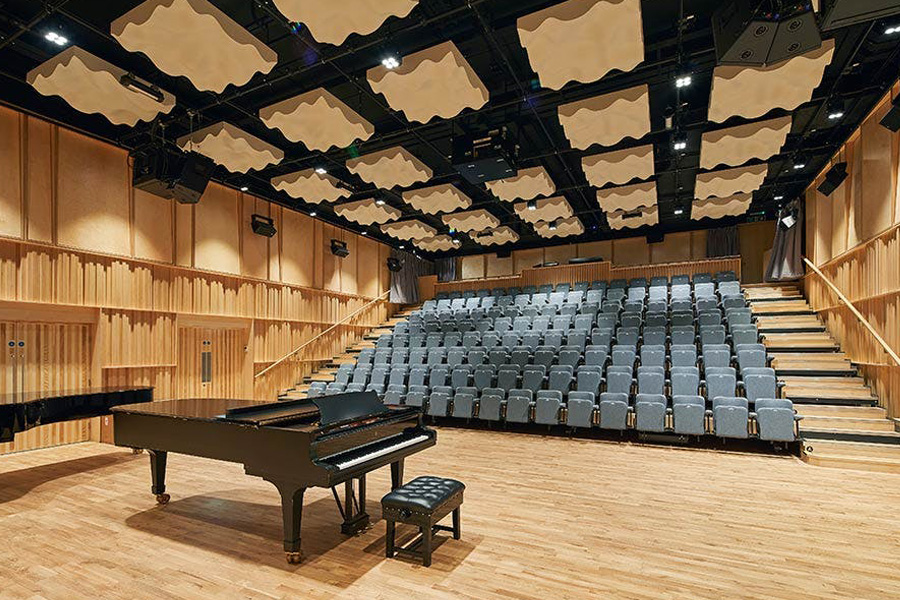
“It was one of those conversations that turn out to be game-changing,” Jody Thorne says. “The Conservatoire was in the process of building a new facility and was looking for high quality converters with a very small footprint so that they didn’t have to be housed in a separate machine room. Knowing Prism Sound’s reputation in this area, they approached us to see if we could help. Our discussions identified the need for a high channel count system that could be networked across the entire facility. As this didn’t exist, we set about designing it and that project formed the basis of our new modular audio conversion system, the Dream ADA-128.”
Those initial conversations took place in 2015 when the Royal Birmingham Conservatoire, a faculty of Birmingham City University, was making plans to move to a new location in the city. With a history that dates back to 1859, The Royal Birmingham Conservatoire is a world-class institution that provides degree-level training to the musicians, music technologists, actors, stage managers and performers of the future. It has a longstanding reputation for producing high calibre graduates and counts many household names among its alumni, including soul singer-songwriter Laura Mvula, baritone Rhydian Roberts, conductor Michael Seal and actors Helen George, Catherine Tyldesley and Nicol Williamson.
Matthew O’Malley, Studios Manager for the Conservatoire, says: “When our old facility was compulsory purchased, we began the process of building a bespoke new one. Our rationale was to learn from the shortcomings of the old facility and create something fit for the 21st century.”
Based at Jennens Road, the Conservatoire’s new teaching and performance facility was designed by award-winning architects Feilden Clegg Bradley Studios (FCB), who had previously worked on projects such as the Queen Elizabeth Hall at the Southbank Centre, the Victorian Theatre at Alexandra Palace and Brighton Dome. Built at a cost of £57 million, it features 9,000 sq m of purpose designed teaching, rehearsal and performance space, along with an audio and video digital infrastructure that is designed to enhance and support live performance and allow students to experiment with new technologies.
The new building was officially opened in 2017 – the same year that the Conservatoire was granted a Royal title by Her Majesty Queen Elizabeth II. With five performance venues, seven recording studio and over 100 practice rooms, it offers students world-class facilities in which to learn.
But back in 2015 when the building was still at the design stage, O’Malley and his team recognised that the site had space limitations and that getting around these would require a different way of thinking – hence the conversations with Prism Sound.
“We didn’t want to compromise our recording studios, which needed to be of a certain size to fulfil their function, so we decided to do away with machine rooms,” O’Malley explains. “We needed a large channel count – over 100 for some events in the main concert hall – and we also needed very high-quality audio. We already had Prism Sound ADA-8XR multichannel converters – racks of them – so we asked if they could make something with a smaller footprint, but capable of doing the same high-quality job. We were also looking for partners to engage with us and build a relationship that would benefit our students, rather than just being box shifters. Prism Sound fitted that brief perfectly.”
At that point, audio over IP was just becoming a possibility and various digital formats were fighting for poll position. Prism Sound’s design team was already aware of these developments but was waiting to see how the dust would settle.
“Our conversations with the Royal Birmingham Conservatoire gave us the push we needed,” Jody Thorne says. “We were very interested in getting involved and finding a solution that would allow Matt and his team to send audio round the building over IP.”
Initially, Prism Sound was confident that it could come up with a workable solution in time for the 2017 opening of the new facility, but fate had other ideas and thanks to a chain of unavoidable problems, it took longer than that. Firstly, there was an horrific cycling accident that put Prism Sound’s then Managing Director Graham Boswell out of action for months, with the inevitable result that development of the new product was delayed. Then there was the COVID pandemic, followed by world-wide shortages of key components that required Prism Sound’s design team to go back to the drawing board to find workarounds.
“During that time, we operated with a loan of more ADA-8 converters, which we networked together in a Heath Robinson way,” O’Malley says. “It wasn’t ideal – and it was frustrating – but we were prepared to work with our temporary solution until Prism Sound had developed the right product.”
That product – the Dream ADA-128 modular conversion system – finally came to fruition in 2022 and the first units to roll off the production line were delivered to the Royal Birmingham Conservatoire in June 2023. By applying the ‘no compromise’ design philosophy for which it is renowned, Prism Sound had succeeded in creating a product that perfectly complemented its existing range, which included the hugely popular ADA-8XR multichannel converter found in many prestigious audio facilities worldwide.
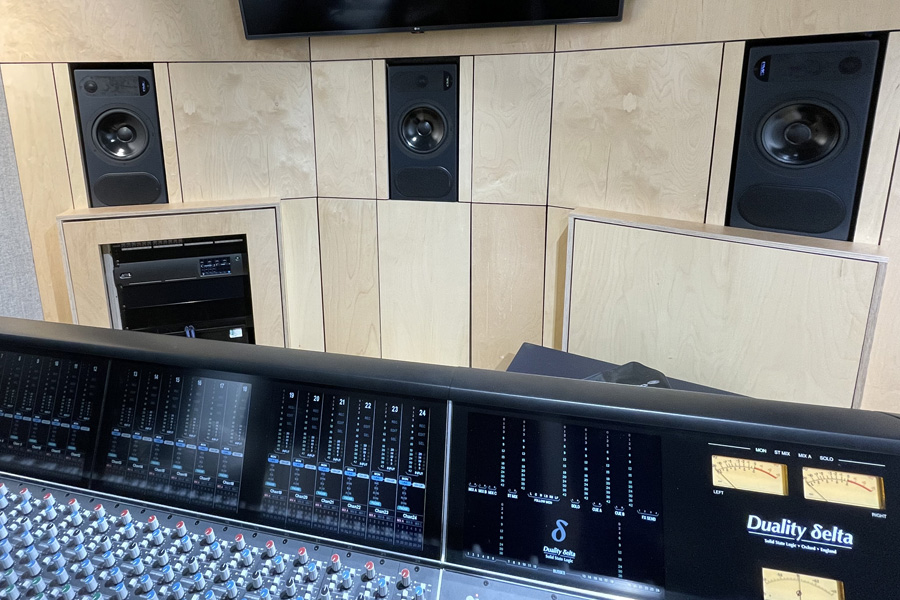
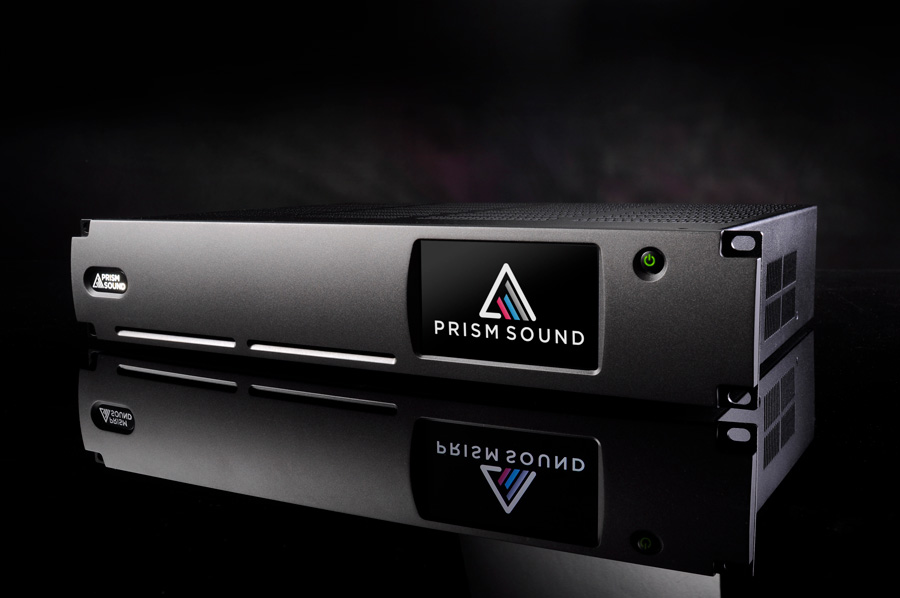
Offering up to 128 channels of 32-bit A/D and D/A conversion at sample rates of up to 768kHz, the Dream ADA-128 is without doubt the company’s best performing product to date. Aimed at audio professionals across many different disciplines, including music recording, post production, broadcast and installation, the Dream ADA-128 is designed as both a conversion system and a high-performance, networkable audio distribution and processing system. Its flexible 2RU mainframe can be fitted with up to 16 analogue and digital IO modules (each of which nominally provides eight input or output ports, or both).
Up to four Host modules offering various connection options such as Dante, DigiLink and AES provide bidirectional multi-channel connections to host computers, workstations, networks etc. Users can mix and match these, and even route audio between them for maximum flexibility, and because the ADA‑128 houses four internal, independent clocks, these systems can all run at different sample rates at the same time.
“The ADA-128 has a host of exciting features including low-jitter master clocks, flexible routing and synchronization options and a comprehensive store system for fast-access factory and user pre-sets,” says Mark Evans, Prism Sound’s Sales Director. “However, one of its key benefits is the ability to independently synchronize the I/O cards to create four different domains, each with its own sample rate and clock. This level of flexibility is unprecedented and will definitely appeal to facilities with more than one control room, as well as projects requiring a large amount of I/O.”
“We have certainly gone beyond the Royal Birmingham Conservatoire’s original specifications and have ended up with a product that is absolutely perfect for many more customers in the installation market,” Jody Thorne adds.
Since acquiring the new units, the Royal Birmingham Conservatoire has been putting them through their paces and the response from staff and students is overwhelmingly positive.
The ADA-128s are incredibly intuitive, user friendly, and the quality of the audio is exceptional. Plus they are more energy efficient as well as taking up a lot less space. They are used all day, every day - which is quite a rigorous stress test.
Matthew O’Malley - Studios Manager for the Conservatoire
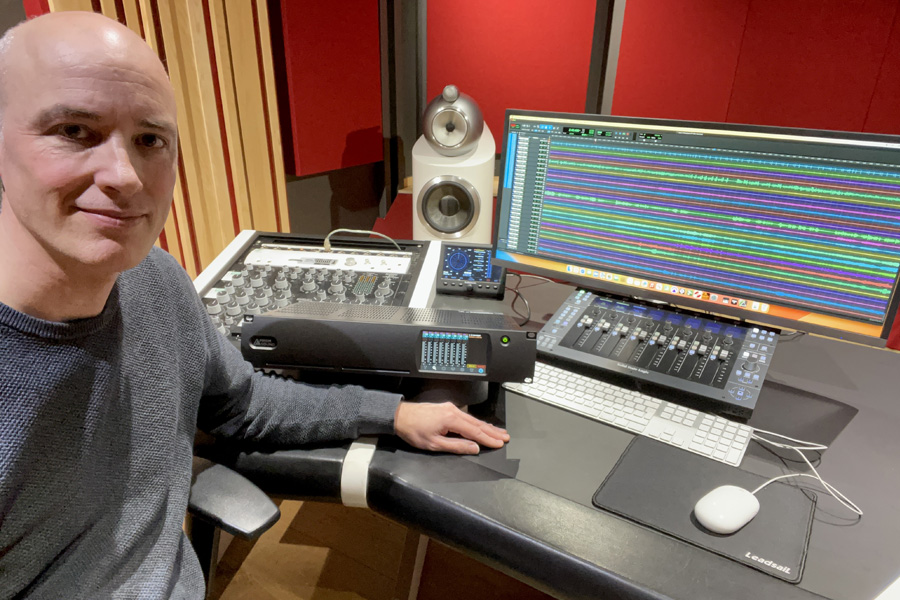
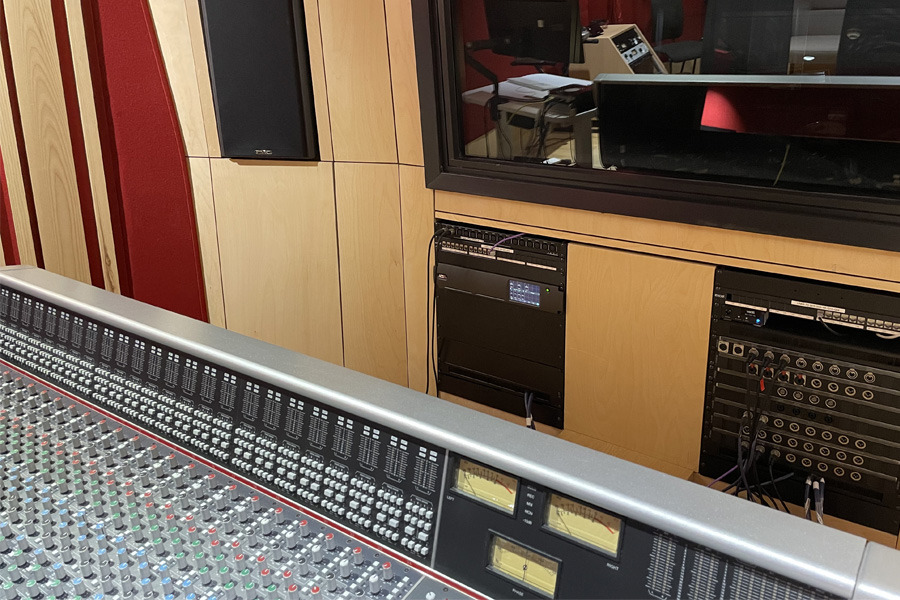
“They are incredibly intuitive and user friendly,” Matthew O’Malley says. “The touch screen display is great, and the quality of the audio is exceptional – which is, of course, what one would expect from Prism Sound. We also don’t have the heat issues we had with all those ADA-8s, plus they are more energy efficient as well as taking up a lot less space in our studios.”
O’Malley adds that students are not always easy on equipment and often break things, which is all part of the learning curve. “So far our ADA-128s have been able to withstand that hard use – they are used all day, every day at a variety of different sampling rates, which is quite a rigorous stress test,” he says.
The biggest test to date, however, took place in November when BBC Radio Three visited the Royal Birmingham Conservatoire’s main auditorium to record a programme for its New Music series. Entitled Painted Time, the recording featured Polish chamber ensemble Flow Unit 3, which consists of Anna Kwiatkowska on violin, Mikołaj Pałosz on cello and Adam Kośmieja on piano. They gave two concerts of new works by students from Royal Birmingham Conservatoire and the Royal Academy of Music, alongside commissions by Joe Cutler, Philip Cashian, and from three leading Polish composers.
“The Dante cards for our ADA-128s arrived just in time for the BBC recordings, so we were able to put the whole system through its paces,” O’Malley says.
The initial idea was for the BBC to use the Conservatoire’s SSL Duality console and take a Dante feed from an ADA-128 to their own portable recording rig. However, things didn’t quite go according to plan.
“We began the set up and routing signals and all seemed fine,” O’Malley explains. “The ADA-128 appeared on the network and was passing audio according to the meters, as expected. We had our Pro Tools rig recording via analogue and the BBC was taking Dante to Reaper and SADiE on two machines. When they hooked up headphones to monitor the outputs of Reaper, backed up by a frequency analyser, we noticed something wasn’t quite right with the sound.”
After investigating, O’Malley pinned it down to the ADA-128 needing a firmware update to bring it in line with the new Dante cards.
“Thankfully, this solved the issue, so we, rather than the BBC, used the ADA-128 Dante option to run a multi-channel backup of the concert from our main tech office, in addition to our Pro Tools rig taking the analogue feed,” he says. It proved the concept that we’re now able to pick up audio from our concert venues and pipe it out to any number of our studios for simultaneous recordings. This will allow us to engage more students in the process of recording from a single source, creating their own independent mixes of a live event and adding these recordings to their portfolios.”
O’Malley adds that bringing students on board to help with set up and observe producer interactions with performers during high profile events is a key part of the learning process, but until now they could rarely lay claim to the final output for their course work.
“Now, with an active Dante network, they can get involved with the rigging of an event and genuinely work independently in a different studio from where the ‘real recording’ takes place,” he says. “This will certainly make them feel like they’ve been engaged right through to the final output and be fairly assessed if it forms part of their course work.”
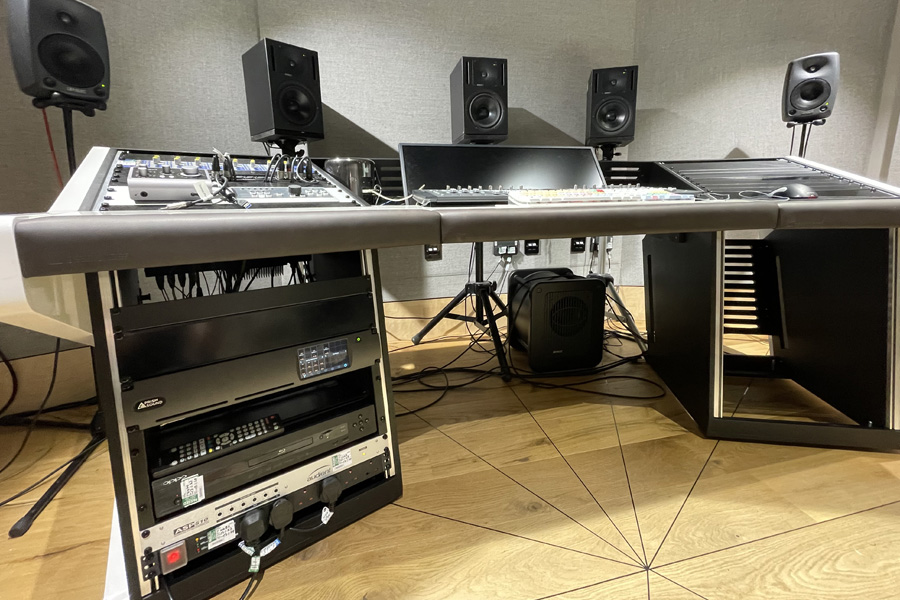
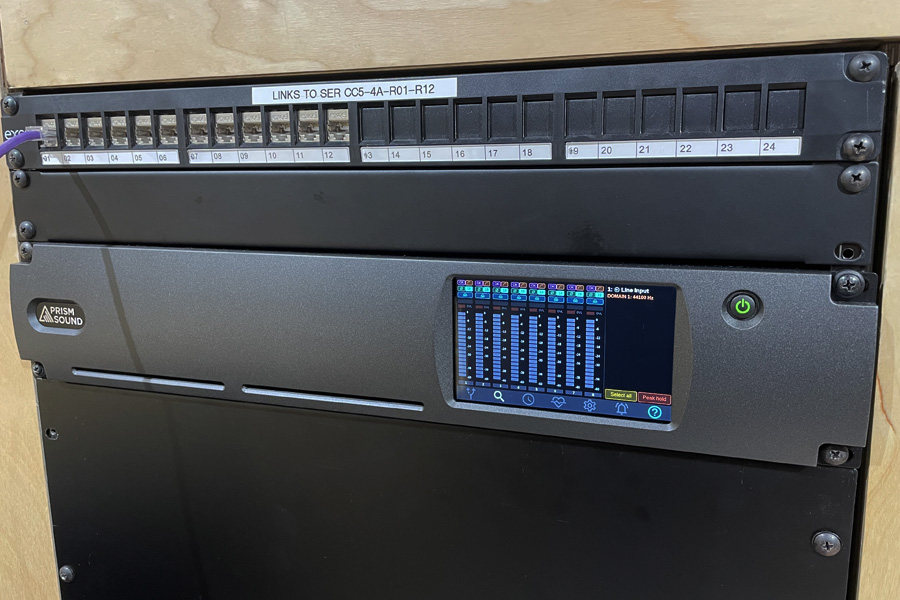
Developing the Dream ADA-128 and getting it to market has been a long road for Prism Sound, but the company – and the Royal Birmingham Conservatoire – never lost faith in the concept. Dream ADA-128 is now being used all around the world with other adopters including the Royal Northern College of Music in Manchester, NHK in Japan and Dean Street Studios in London.
For people who require a high channel count, the Dream ADA-128 is also a very cost-effective solution – 128 channels of Prism Sound’s ADA-8XR conversion, for example, would cost substantially more and take up a lot more space in a rack. In addition, because it is fully modular, it is also an ideal way for businesses to futureproof their audio facilities as any changes and upgrades can be addressed by simply adding new option cards.
“It has been a long time in the making, but we couldn’t be more delighted with the product we have produced,” Jody Thorne adds. “Our flagship ADA-8XR multichannel converter has been a best seller for more than 20 years and that longevity is due to the care and attention to detail Prism Sound put into its original design. The same level of care has gone into the design of the new ADA-128 and we are confident that this revolutionary product will be just as well received for many years to come.”

